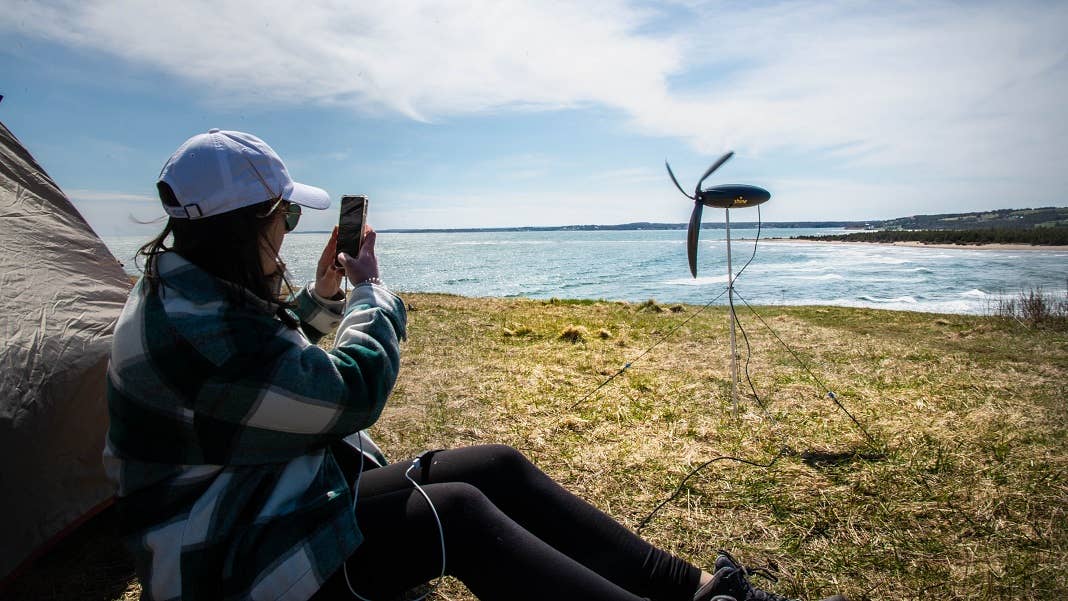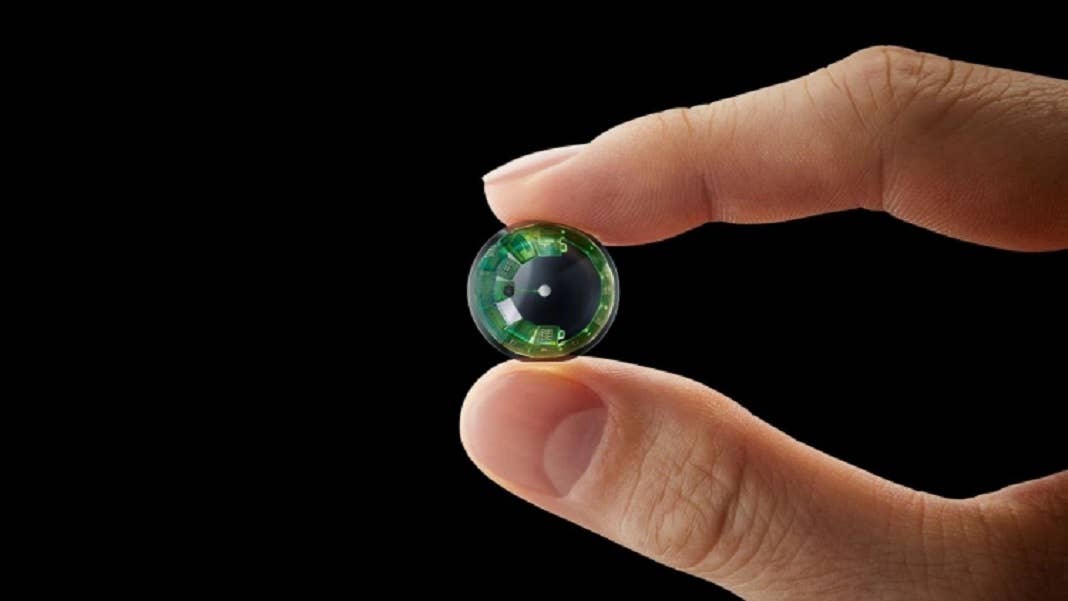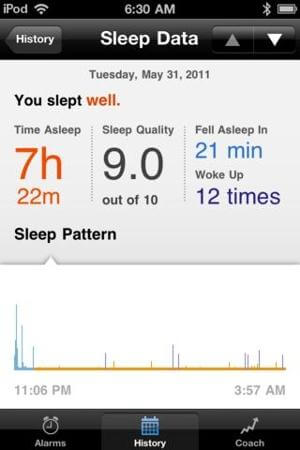iPhone Wristband Tracks Your Sleep, Vibrates You Awake, and Lets Your Mate Sleep In

Share
How well did you sleep last night? If you don't know you could try asking your mate, or you could ask your iPhone. Lark, a Silicon Valley startup has created a wristband that tracks your motion during the night - a standard sleep analysis technique called actigraphy. Data is sent via Bluetooth straight to your iPhone (or other iOS device) and recorded so you can review it later. But that's not all. Lark will also get you up in the morning, gently vibrating you awake whenever you set the alarm. The big sell is that such a quiet stimulus will wake you without cutting short your sleeping partner's dreams. Watch the commercial for Lark in the video below. Retailing for $100, Lark's a relatively cheap way to monitor your sleep, and if actually makes your partner happier to share a bed with you then it's pretty near priceless.
As you'll see in the video, the Lark setup is straight forward. Wear the wristband at night, set an alarm, and go to sleep. When the time comes for you to get up, the wristband shakes you a bit. Turn off the alarm, get out of bed, and let your mate enjoy the rest of their slumber. Easy:
Lark the company debuted at Disrupt 2010, while the product was first seen at Disrupt NY 2011 in May. It hit market this June and has been getting good press ever since. Available exclusively through the Apple store, it's nevertheless going to have a free Android app soon to match the free iOS app already built for it.
As a person who shares a bed with another human (sorry, robots!) Lark's "vibrate you awake while your partner stays asleep" angle is pretty appealing. We've tried many different ways to wake up (I have one of those sun-simulator alarm clocks, and we both have smart phones with alarms) but ultimately one of us always wants to sleep more. Maybe Lark's silent "un-alarm" is a good solution?
Be Part of the Future
Sign up to receive top stories about groundbreaking technologies and visionary thinkers from SingularityHub.


Truth be told, however, the really interesting technology here isn't the vibrating wristband, it's the sleep analysis. We've seen many different sleep monitoring devices, but Lark is among the very cheapest (roughly half the cost of the Zeo headband). Of course, Lark also only measures motion, not brain waves. It won't wake you up during some sort of idealized brain state (like the Zeo will). While this actigraphy is an accepted, and very common, form of sleep analysis I'm not sure how useful Lark's data will be to you. You'll get a lot of it (thousands of points collected) so you'll know if you slept well, but Lark can't tell you why you slept as you did. A $60 bump in price will give you the Pro edition, which comes with a seven day sleep assessment and a personal sleep coach for a year. That may help you make more sense of your data. Ultimately however, like so many health monitoring technologies, Lark is really only as useful as you make it.
But maybe we should all be trying very hard to make such data useful. As I mentioned a year ago, sleep is a precious commodity, perhaps more so in the modern world than ever before. From health to intelligence, there's little that is as likely to consistently affect you as a good night's rest. So try to get some sleep if you can. And if you (or your bed mate) try out Lark, let me know how it works for you. Our household is still looking for the best way to wake up.
And, no, we're not accepting "children" as an answer. ...That's the solution for housework.
[image and video credit: Lark]
Source: lark
Related Articles

This Portable Wind Turbine Is the Size of a Water Bottle and Charges Devices in Under an Hour

Mojo Vision’s New Contact Lens Brings Seamless Augmented Reality a Step Closer
The Weird, the Wacky, the Just Plain Cool: Best of CES 2020
What we’re reading

